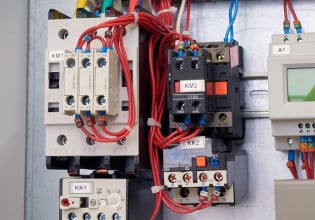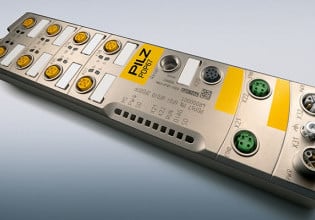Rockwell and Accenture Announce Partnership to Digitize Industrial Automation and Supply Chains
Rockwell Automation has recently announced a partnership with Accenture, with the goal of revolutionizing industrial supply chains and industrial automation.
At their 27th Automation World conference, industrial automation leader Rockwell recently announced a joint venture with Accenture (as well as its Industry X.0 initiative) to build an industrial digitization solution that optimizes the supply chain.
The firms will seek to achieve this end through the use of Accenture’s Industry X.0 and Rockwell Automation’s proprietary solutions, including those integrated into their InnovationSuite, such as FactoryTalk (launched in November of 2018) and PTC’s ThingWorx.
Much like Rockwell Automation, Accenture works to automate, integrate, and otherwise optimize industry solutions. They provide customized plans through their Industry X.0 paradigm to increase sustainability by reducing the overall cost-to-performance ratio in industry.
To accomplish this, Accenture leverages digital solutions including AI, IIoT, and blockchain technologies for better analytics, cybersecurity, and even R&D incubation spaces where engineers can get their hands on software solutions and robotics technology from across the Innovation Network.

An example of an Accenture Innovation Space, where collaboration and testing can take place prior to scaling. Image used courtesy of Accenture.
However, despite the fact that they both provide industrial automation, Accenture’s approach is a far cry from Rockwell Automation’s. In addition to digital solutions and their software suite, Rockwell also provides hardware solutions such as systems controllers, drives, I/O chassis, and a wide range of other products.
Accenture’s Industry X.0: A Transformative Solution
Accenture’s Industry X.0 is, above all else, a framework or a paradigm. It is a division of Accenture’s services that seeks to leverage emergent and smart technologies in factories and industrial systems to optimize each individual component.
This can be accomplished through a variety of means, including additive manufacturing, artificial intelligence integration, the use of robotics, or any other number of automation or optimization technologies that Accenture deems valuable to each specific client’s unique needs.

An example smart robotic arm solution from Accenture. Image used courtesy of Accenture.
As such, no two Industry X.0 solutions are exactly the same, and the unique value proposition of Accenture’s service is their customized assessment of a situation's needs in addition to the actual industrial optimization and automation that takes place afterwards.
Revolutionizing the Industrial Supply Chain
So, where does Rockwell Automation come in?
Due to the fact that Industry X.0 is a model that seeks to optimize industry rather than a proprietary software suite, this provides Accenture with a certain amount of freedom that other organizations may not have when partnering with other firms.
As a result of this partnership, Accenture’s Industry X.0 adopters will receive more streamlined development, installation, integration, and support from Rockwell Automation for its wide range of industrial controls and automation solutions. These include Rockwell’s industry-leading InnovationSuite and their wide range of industrial controls hardware.
Additionally, Accenture will continue to provide its users with all of its enterprise support services, including consulting, analytics, system integration, and industry management. In a press release, Rockwell’s CEO Blake Moret said that the partnership between Rockwell and Accenture would allow the companies to “reduce complexity, reduce risk, and achieve better results with comprehensive enterprise-wide expertise.”
Ecosystem-level Support
In an age where smaller companies are increasingly capable of gaining a foothold in the automation space, the familiar cast of industry juggernauts (in this case Rockwell) is looking for ways to stay on the bleeding edge of innovation. The result appears to be a trend in partnerships between the old familiar companies and newer, more niche companies with narrower focuses. This can be weighed against the parallel trend of major corporations fully acquiring smaller brands and assimilating their services into their portfolios.
In other ways, however, this system is not so different from the past in which engineers could turn to the same list of mega-companies for various solutions all in one fell swoop. Through their work with companies like Accenture, they can remain a mainstay in the automation space and provide holistic, ecosystem-level support to customers without giving up market share.
What's your view on the trend of partnerships between companies to provide hardware, software, management systems, etc.? Share your comments below.





